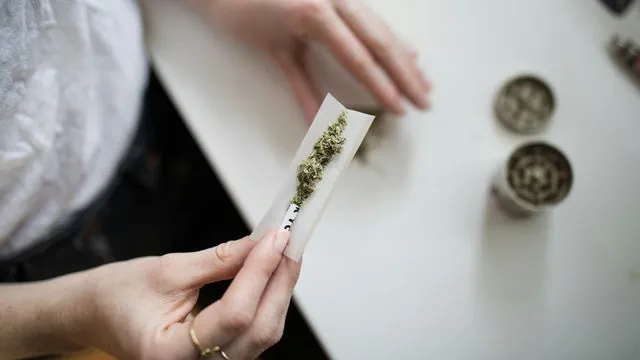
The Hidden Dangers of Using Cannabis for Anxiety and Pain Relief
2025-08-27
Author: Siti
New Research Unveils Alarming Links Between Cannabis Use and Mental Health Issues
Groundbreaking research from King's College London's Institute of Psychiatry, Psychology & Neuroscience (IoPPN) reveals a troubling connection between the reasons for cannabis use and the onset of paranoia. As cannabis potency rises globally, so do the rates of cannabis dependence and psychosis, particularly in North America.
What Drives Cannabis Use?
In a survey involving 3,389 current and former cannabis users aged 18 and older, researchers dove deep to understand why individuals initially turn to cannabis. The findings are striking; those who began using cannabis as a form of self-medication—whether for anxiety, depression, pain, or other ailments—tend to report significantly higher levels of paranoia compared to those who consumed it for recreational purposes.
Self-Medicating May Do More Harm Than Good
Dr. Edoardo Spinazzola, the study's lead author, underscores this alarming trend: "Our study highlights that utilizing cannabis as a coping mechanism for mental or physical discomfort can aggravate paranoia, anxiety, and depression. Many in this group had anxiety and depression scores that warranted counseling referrals."
How Much Are Users Consuming?
The research also tracked users' THC intake, the psychoactive component of cannabis. On average, respondents consumed around 206 units of THC weekly—roughly equivalent to 10 to 17 standard joints. However, those using cannabis to alleviate anxiety or depression reported even higher consumption levels, raising concerns about the implications for their mental health.
Childhood Trauma: A Compounding Factor
In a related study published in Psychological Medicine, researchers examined the impact of childhood trauma on cannabis users. Alarmingly, over half of the participants reported experiencing some form of trauma, leading to heightened paranoia levels. Notably, emotional and physical abuse were found to be significant predictors of paranoia.
The Nexus of Trauma and Cannabis Use
The data also revealed that those who endured childhood trauma, particularly sexual abuse, displayed increased THC consumption. The findings suggest that not only does childhood trauma increase paranoia, but cannabis use further intensifies these feelings, especially among those who suffered emotional abuse.
Implications for Clinical Practice
Dr. Giulia Trotta, another key researcher, emphasizes the need for early trauma screening in patients exhibiting paranoia. Her study sheds light on the serious interplay between childhood experiences and the mental health risks associated with cannabis use.
A Call for Caution in Cannabis Legalization
Professor Marta Di Forti, a senior author of the studies, echoes a crucial message: the legalization of cannabis must be accompanied by adequate public education and health support. The research confirms the significant mental health risks tied to using cannabis as a coping mechanism, urging policymakers to tread carefully.
What This Means for Future Cannabis Users
As discussions about cannabis legality and safety continue to evolve, users must remain aware of these findings. Understanding the motivations behind cannabis use—and the potential for worsening mental health—could be vital for those seeking relief from anxiety and pain.


 Brasil (PT)
Brasil (PT)
 Canada (EN)
Canada (EN)
 Chile (ES)
Chile (ES)
 Česko (CS)
Česko (CS)
 대한민국 (KO)
대한민국 (KO)
 España (ES)
España (ES)
 France (FR)
France (FR)
 Hong Kong (EN)
Hong Kong (EN)
 Italia (IT)
Italia (IT)
 日本 (JA)
日本 (JA)
 Magyarország (HU)
Magyarország (HU)
 Norge (NO)
Norge (NO)
 Polska (PL)
Polska (PL)
 Schweiz (DE)
Schweiz (DE)
 Singapore (EN)
Singapore (EN)
 Sverige (SV)
Sverige (SV)
 Suomi (FI)
Suomi (FI)
 Türkiye (TR)
Türkiye (TR)
 الإمارات العربية المتحدة (AR)
الإمارات العربية المتحدة (AR)